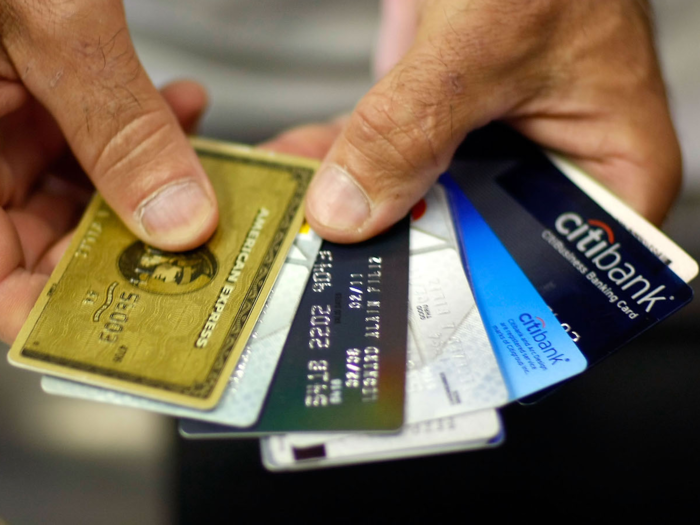- Home
- slideshows
- miscellaneous
- How a couple with a bad financial track record paid off $109,000 in credit card debt and saved their marriage
How a couple with a bad financial track record paid off $109,000 in credit card debt and saved their marriage
How the spending problems began

Signs of trouble

This plan worked for close to 10 years — until they ran out of runway. One credit card turned into five, and as balances ballooned, the stress of the monthly payments crept in on them. They began communicating more only in the form of disagreements and money fights over their spending habits. The defining moment came when they were close to maxing their credit limits on all five of their cards and could not finance a summer vacation for their family.
Brian was the one who managed the money in their house. He says, "I felt like I had let my wife and children down." Backed into a financial corner, he knew it was time for a change.
Money problems destroy marriages

One of the top problems facing romantic relationships today is money and debt. According to a Ramsey Solutions survey, money is the second leading cause of divorce, after infidelity.
Here are some more of the key findings from the Ramsey survey:
Nearly two-thirds of all marriages start off in debt. Forty-three percent of couples married more than 25 years started off in debt, while 86% of couples married five years or less started off in the red — twice the number of their earlier generations. One-third of people who say they argued with their spouse about money say they hid a purchase from their spouse because they knew their partner would not approve.
Ninety-four percent of respondents who say they have a "great" marriage discuss their money dreams with their spouse, compared to only 45% of respondents who say their marriage is "okay" or "in crisis."
Eighty-seven percent of respondents who say their marriage is "great" also say they and their spouse work together to set long-term goals for their money.
And 63% of those with $50,000 or more in debt feel anxious about talking about their personal finances. Almost half (47%) of respondents with consumer debt say their level of debt creates stress and anxiety.
How they did it

Knowing he needed to make a change, Brandow began to educate himself on strategies to get out of debt. He found several personal finance blogs, the debt snowball technique, and the Dave Ramsey community. With his newfound knowledge, Brandow was able to build a plan for his money — his family's first budget. For their budget, Brandow simply sat down with his computer and an Excel spreadsheet and tallied up all of his family's income and expenses. The couple was then able to decide where they needed to cut back.
The couple reviewed and decided on a plan for their money as a team for the first time. They both agreed that it would be difficult to change their bad behaviors, but that they needed to make the change for themselves and their three children. They also decided that they needed to continue to communicate about their money often, setting up periodic check-ins.
Brian and Lynn also spoke to their three children about their bad financial behaviors. They wanted the kids to understand why spending changes would be taking place and why they might hear the word "no" more often when asking for things.
The first few months of Brian and Lynn's plan were tough. It took time for new habits to form and the whole family to adjust. "We began by paying our smallest debt first — we followed the snowball method (paying off the smallest debt first and then moving up the line of debt). Our total monthly payment for our debt was $2,000 for nearly the entire duration of our debt repayment period," explained Brian. Over time they became experts at finding novel ways to save money and stretch out their dollars by cutting out trips to the salon, cutting out subscriptions they had, and limiting their travel, but they hit a few bumps in the road too.
Lynn was in a car accident and was out of work for over a year. Brian explains, "Our primary goal was to make sure Lynn was healthy. The fact that we now had a plan for our money, [meant] an unexpected life event like this was easier to manage." Lynn recovered and returned to work.
Life after debtHaving a clear "why" really helped Brian and family stay motivated during the long payoff. Saving money wasn't easy, but within the first few months of their repayment, with only a few thousand dollars knocked off of the debt, they began to feel the effects of their progress: less stress in their lives and no bad feelings toward money.
The simple fact that they had built a money plan as a team to overcome their debt helped to strengthen their relationship and marriage. Involving their three children in money discussion brought the family closer together than they had ever been.
"It's a whole new life and relationship together after debt!" Brian says now.
Popular Right Now
Popular Keywords
Advertisement